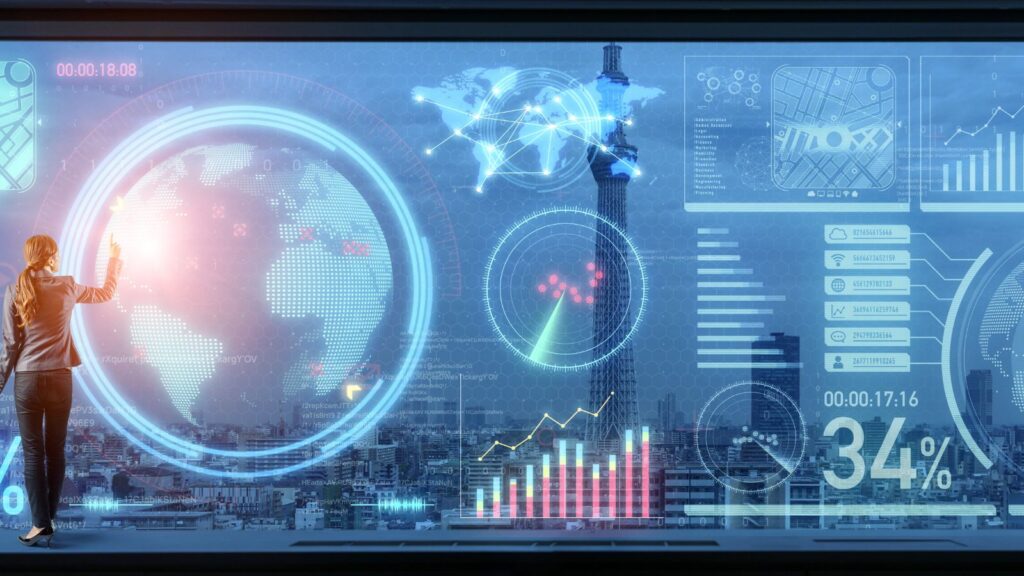Securing an individual’s online identity in the current internet era cannot be overstated. VPNs make a strong support case for anonymity by providing a secure connection to the internet. They create an encrypted tunnel that hides you from prying eyes and possible threats. This post will discuss the major ways VPNs keep your personal information safe. When people understand these features, they become more confident and have control over their information when navigating the internet.
IP Address Masking
VPNs have a good record of concealing your real IP address and replacing it with one from their network servers. This procedure effectively covers up your geographical position and online identity. Once connected to the VPN, your internet traffic passes through an intermediate server, which then interfaces with online services on your behalf. To outsiders, it seems the traffic originates from a VPN server rather than its location.
This IP-masking feature entails several advantages for anonymity maintenance. It stops websites from determining where you are physically or connecting your online activities to a physical place. It can also help circumvent geo-restrictions preventing you from accessing your area’s content.
You can change where you appear to be by using numerous CometVPN servers. It will further blur out all forms of digital footprints, making it more difficult for third parties to compile comprehensive profiles of your online conduct.
Encryption of Internet Traffic
VPN services use strong encryption protocols to secure your online activities, thus making them impregnable against threats and data interceptions. VPNs encrypt every piece of information that the user transmits from their devices to the server, making it an incomprehensible language for any potential watchers. They also shield your internet connection, protecting your surfing habits and instant messaging.

Most reliable VPN providers possess encryption standards similar to those used by military services, like AES-256. For instance, even if a hacker intercepts your data, without the encryption key, they won’t be able to read it. Users have protection from man-in-the-middle attacks, eavesdropping on public Wi-Fi networks, and possibly snooping from their internet service provider.
No-Logs Policy
Another important aspect of VPN anonymity is having a no-logs policy. The provider does not collect data on your online activities, connection times, or IP addresses. By doing this, VPNs ensure that there would be nothing substantial to disclose even in the hypothetical case they had to provide user information to the authorities.
The significance of a no-logs policy in ensuring genuine anonymity cannot be exaggerated. It guards users against potential data leaks, state surveillance, and any efforts to connect internet activities with specific persons. When choosing VPNs, it’s crucial for users to critically examine their privacy policies and seek providers who have received audits regarding their claims of being “no-logs.”
Protection of Public Wi-Fi Networks
While they may be convenient, public Wi-Fi networks are notorious for being hotbeds of cybercrime. VPNs handle this by creating a secure passageway for your information on even the most vulnerable networks, thus helping you evade these dangers.
Once you have connected to a VPN before entering a public Wi-Fi hotspot, it will cipher all your web traffic, making it difficult for hackers to tamper with or use it. This security feature is especially important when conducting sensitive activities such as online banking and accessing work-related data outside the office.
Bypassing Geo-Restrictions and Censorship
VPNs are very effective for escaping geographical limits and evading online censorship. They, in turn, enhance a user’s anonymity and liberty. VPNs easily falsify one’s location by permitting individuals to connect to servers in different nations, allowing them to access content forbidden in their localities. As such, this feature is highly useful in watching streaming services, reading news online, or using social media platforms that might be geographically blocked or restricted.

Besides, within nations with stringent internet control measures, VPNs serve as a lifeline to the open internet. They enable people to avoid government firewalls imposed on specific websites. VPNs keep information about users private and encourage freedom of expression and dissemination of knowledge.
Endpoint
VPNs offer full protection for any user’s identity, thus becoming invincible defenders of cyberspace secrecy. Thanks to IP obfuscation, data encryption, a no-log policy, and public Wi-Fi security, VPNs provide multiple layers of protection needed for securely surfing the web.
Also, they act as portals into unrestricted global internet usage. They surpass geo-blocking sites and censorship regimes set up by those looking to bar others from accessing information freely. Given ever-increasing concerns over maintaining privacy on the web, using VPNs becomes crucial when keeping our digital masks on us during online activities.


